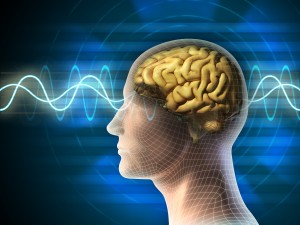Psychedelic Drugs of Abuse
 Psychedelic drugs like mescaline, peyote and LSD are often associated with the hippie counterculture of the 1960s, when flowers were powerful and defying authority was considered an essential rite of passage. As the years marched on, however, these drugs were still considered vital and useful for some people, and now, evidence suggests that psychedelic drugs are just as popular as they were in the 1960s. A recent study in the journal F1000 Research suggests, for example, that psychedelic drug use rates are the same among the Baby Boomer generation as they are in the younger generation, standing at about 17 percent.
Psychedelic drugs like mescaline, peyote and LSD are often associated with the hippie counterculture of the 1960s, when flowers were powerful and defying authority was considered an essential rite of passage. As the years marched on, however, these drugs were still considered vital and useful for some people, and now, evidence suggests that psychedelic drugs are just as popular as they were in the 1960s. A recent study in the journal F1000 Research suggests, for example, that psychedelic drug use rates are the same among the Baby Boomer generation as they are in the younger generation, standing at about 17 percent.
People who take these drugs often believe that their experiences will do them no harm, and some of these users point to modern scientific studies on hallucinogenic treatment for disease as proof that the drugs are beneficial. However, most experts suggest that recreational use of these substances really can be dangerous for some, if not all, people who use them.
A Wide Variety
Drugs that cause a change in perception are typically classified as psychedelic drugs. Some of these products grow right out of the earth as mushrooms or cactus, and they can be chewed or brewed into a tea. These very old drugs are still in use, and they’re joined by newer substances that were created in laboratories.
These modern psychedelic drugs are typically provided in pill or injectable formats, or they can be sprinkled into papers and smoked. These products include:
- Ecstasy
- Ketamine
- Dextromethorphan
- Synthetic cannabinoids
These drugs all have their own chemical makeup and they all work within the human body in slightly different ways, but most of these substances seem to block the function of specific portions of the brain that deal with perception. In a healthy brain, some signals and processes are filtered or blocked, allowing the mind to focus on just a few things. A drug-impacted brain has no such filtering or blocking, so all signals reach the mind at once. People who take these drugs often report feeling as though their sense of self is disappearing and becoming less important, even as they become more aware of the world around them and how it might function.
The Limits of Research
 Much of what’s known about psychedelic drugs comes directly from the mouths of people who take these drugs, and there are plenty of people who seem willing to discuss their use of drugs and how they feel while on these substances. New York Magazine, for example, produced a report on an underground community of online activists who were willing to tweak the chemical composition of psychedelic drugs and write detailed accounts of their experiences. At the time the article was written, about 10,000 to 20,000 people were involved in this project.
Much of what’s known about psychedelic drugs comes directly from the mouths of people who take these drugs, and there are plenty of people who seem willing to discuss their use of drugs and how they feel while on these substances. New York Magazine, for example, produced a report on an underground community of online activists who were willing to tweak the chemical composition of psychedelic drugs and write detailed accounts of their experiences. At the time the article was written, about 10,000 to 20,000 people were involved in this project.
This kind of grass-roots experimentation can seem positive and even a little bit exciting, but there are limits to what a first-person account can accomplish. People who take these drugs can describe their experiences in the moment and their feelings in the days and weeks that follow, but they can’t detail the structural changes taking place in the brain and the cellular changes taking place in the rest of the body. That’s the kind of research only a licensed professional can perform, and very little of that work has been performed on psychedelic drugs since the 1960s.
According to an overview article in The Guardian, when LSD was banned in the 1960s, it became increasingly difficult for researchers to obtain the drug for their own medical experiments. Some researchers even refused to conduct experiments with this drug, because they feared travel restrictions or some other major consequence as a result of their work. Some of those studies are being conducted now, but the research is new and it’s not yet comprehensive. As a result, it’s safe to say that scientists know very little about these drugs and how they really work inside the human body. They may have some good guesses, but they don’t have the decades of research that culminate in a deep and profound understanding.
It is true, however, that some researchers are choosing to use psychedelic drugs in studies of people who have depression or some other psychological disorder. People who believe these studies prove the safety and efficacy of regular psychedelic drug use should think again, however, as these studies are tightly controlled, and the way the drugs are used here may not be similar to the way drugs are used in the real world by addicted people. For example, in a profile of research using psychedelic drugs in the treatment of mental illness, published by CNN, researchers provided only a few doses to participants, and all were provided with therapy to help them process their experiences. People didn’t take these drugs for decades, and they didn’t take them every day. The safety profile might be much different, as a result, from a recreational user who might take the drug daily with no one to guide that use and explain what the sensory changes might mean.
Understanding the Risks
Some people who take psychedelic drugs experience difficulties almost immediately, whether they’re taking these drugs in research settings or on their own. They may feel completely out of touch with their own bodies, experiencing sensations that are confusing and completely unfamiliar.
Some of these sensations can even be terrifying and so upsetting that people lash out with violence, attacking others without really understanding what they’re doing.
Their hearts may race and they may feel sweaty and just uncomfortable, but they may not be able to prevent the problems from progressing. The things a person does while on psychedelic drugs may be all the more damaging as the person can still be prosecuted for those actions. Even though the drugs are to blame and even though the actions weren’t really under the person’s conscious control, law enforcement agents might still choose to press very serious and lasting charges on people who act out while under the influence of these very powerful substances.
 An episode like this can be terrifying, and for some people, the memories of these incidents are so persistent and strong that they recur from time to time. Experts call this a “flashback,” and in some cases, it can be treated with medications. Flashbacks can be so terrifying and upsetting, however, that some people develop anxious feelings about when the next episode might strike, and they might withdraw from social situations as a result. If these people ask for help with their mental illnesses, they might face even more difficulties, as a study in The Ochsner Journal suggests that people with a flashback history who take antidepressant drugs may have new episodes of flashbacks, even if they hadn’t had those flashbacks in the years that came before.
An episode like this can be terrifying, and for some people, the memories of these incidents are so persistent and strong that they recur from time to time. Experts call this a “flashback,” and in some cases, it can be treated with medications. Flashbacks can be so terrifying and upsetting, however, that some people develop anxious feelings about when the next episode might strike, and they might withdraw from social situations as a result. If these people ask for help with their mental illnesses, they might face even more difficulties, as a study in The Ochsner Journal suggests that people with a flashback history who take antidepressant drugs may have new episodes of flashbacks, even if they hadn’t had those flashbacks in the years that came before.
While dealing with flashbacks that come and go can be damaging, there are some people who experience an even more significant form of damage due to their abuse of psychedelic drugs.
These people seem to trigger a form of schizophrenia with their use of drugs, and on a daily basis, people like this experience.
- Hallucinations
- Psychosis
- Sensory distortion
- Intense feelings of anger or fear
Researchers have been trying to determine why some people experience this kind of problem when others do not, and a study in the Archives of General Psychiatry suggests that parental substance abuse could play a role in a child’s susceptibility to this kind of problem, the answers are still a bit unclear. As a result, it’s safe to say that almost anyone who abuses psychedelic drugs, including people who abuse the drug just once, could be at risk for developing a sensory perception problem that persists for the rest of life. It doesn’t sound desirable, and it might not be avoidable for anyone who chooses to partake.
Stopping the Cycle
As mentioned, researchers know very little about the kinds of structural changes that can take place with long-term abuse of psychedelic drugs. As a result, it’s hard to say how many people who use these drugs are at risk of addictions. It is clear, however, that some people who take in these substances become interested in repeating the experience over and over again, and they may become belligerent when they’re asked to stop their abuse. Some people might also feel physically unable to stop abusing these drugs, and they may feel their need for drugs rise when they’re experiencing stress or some other type of intense emotion. They may also feel an urge to use when they see the people, places and things they associate with drugs. A treatment program, such as the one we provide at The Orchid, can help.
In a treatment program, addicted people have the opportunity to explore their motivations for abusing drugs, and they’re asked to develop their resistance skills, so they can meet a trigger head on without lapsing into poor habits. The work can be difficult and time-consuming, but it could be vital for people who want to experience life without leaning on mind-altering substances. If you or someone you know needs this help, please call us. Our model, designed around the needs of women, could provide just the right kind of help.
